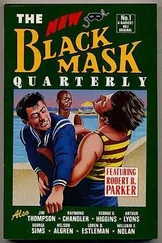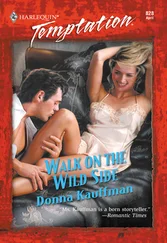By 1930 the old way West led nowhere but to the shade of a water tower where old bums drained sterno through ragged bandannas and left such small earnest tokens of their passing as a tennis sneaker with the sole gone through, an undershirt ironed brown by the wind or an empty half-pint labeled White Swan Gin – Bottled in Chicago .
Crease-faced or rosy, shaggy or bald, faded or florid, spare or stout, fried by sun or bedraggled by showers, one by one they came through the door of La Fe En Dios . To stand, shifting a cap from one hand to the next between the juke box and a potted fern till the Mexican women finished serving her paying customers. Then they received the last cold dregs from the coffee urn, half a day-old pineapple pie and a bar of American Family soap.
If they wanted more than that they would have to come by daylight and work for it. Bald or barefoot, old or young, each promised eagerly, even with gratitude, to be on hand at seven a.m. sharp.
And to a man seven a.m. found them riding as fast and as far from the little lost town as any S.P. freight could carry them. Yet let the east-bound freights pass by if a west-bound freight was due. They still sought the old way home.
The old way home that was now no more than any stretch of broken walk you reach at the end of any American town on any Saturday afternoon. Where blocks of paving stone lie severed by wind, sand and W.P.A. And a sign that may say TRUCK TURNING.
Where black-eyed Susans grow out of the separating sand and a rusty beer can with two holes punched in the lid awaits the Resurrection or one more real estate boom.
The old way home that led, at last, to nothing more than a tossing gas-flare over a sign at the walk’s very end:
YOU ARE NOW ENTERING ARROYO
Pop. 955
A statistic that didn’t include the Mexican woman whose residence was just far enough beyond it to keep her free of local taxes. Whose own way home, eleven months of twelve, was up a flight of careworn stairs to a room guarded only by the Virgin Mary.
Terasina Vidavarri slept within a double ruin. Within the wreck of her own hopes, inside what was left of the Hotel Crockett. The last guest had left and all along the long uncarpeted hall, the doors, like her own soul’s door, were boarded on both sides.
Yet in sleep sometimes heard a pianola play. The boarded doors opened, the place came alight with the light that shines in dreams; to show men taking women on all the beds till she wakened. And saw a full moon rising with a yearning all its own.
‘It is lucky to love any time, for then you have someone to live for,’ Terasina thought, ‘but if you are not in love that is lucky also. Because then you have no problem.’
Actually she’d hardly tried her luck. Her first and only lover had pitched such a fright into her that she’d taken no chances since.
A girl of no family, a chambermaid in hotels catering to American tourists down in Merida in old Yucatán, Terasina, at sixteen, had become engaged to a bald, middle-aged Floridan of Spanish extraction.
In his youth a second lieutenant, in his middle age a florist both by vocation and avocation, a carrier-off of prizes in flower shows, an exporter of day-lilies. An ancient wet-lipped orgiast in an American Legion cap – what a rare plant her florist was the girl had had not an inkling until their wedding night.
She had wakened from a light sleep. Beside the bed a little lamp threw a deep orange glow. She heard the ex-lieutenant moving about the bathroom and it had struck her that he had been in there an unconscionably long while. She called his name. No reply.
And was looking straight at that door when he strode out naked but for a helmet and swagger stick borne like a rifle – ‘ Ein! Svei! Drei! What? Afraid of a soldier?’ Yet the impulse to laugh froze fast in her throat, for his face was a mask that brooked no laughter. Goose-stepping high past her bedside, three times past her bed, he came to attention in a light that seemed swathed in a sweltering mist. And touched the swagger stick with disdain between her eyes.
‘What? Afraid of a soldier?’
She saw he was completely hairless then.
For the indignities that had followed Terasina still had no name. But once she had warned him, ‘Now I’m going to scream.’
The swagger stick’s shadow fell across the sheet. She had bitten the pillow instead.
And the scent of cologne, like a nightmare in lilac, had risen first strong and then faint.
Till daybreak had emptied him at last of everything save self-disgust. Too exhausted to cry, he lay drooling weakly with the odor of lilac dying slow, like midnight in a barber shop.
Two days later the girl had looked in a mirror: above her blue-black bangs the hair had turned, in one small triangular patch, to the whiteness of fresh snow.
Her Floridan had returned to his flower beds and the Negro boy who assisted their cultivation.
Now, ten years after, Terasina’s only flowers were great hairy-stemmed barnyard hollyhocks. And her dreams contained far stranger creatures.
She would find herself waiting in some great shadowed corral in a sheer night dress, for one whose hair, worn long, kept blowing across his face like a mane; whose scent had salt and sweat in it. A stallion made of moonlight, to rear against her neighing and all her hopes rearing with him. Then the salt-sweat scent turned sick and she wakened with a barber-shop scent fleeing faintly along the boarded doors. Weak with disappointment, she would dress in the holy cold and shrive herself like a nun to make herself proud again. Ready to play waitress downstairs to the brotherhood of trailer, truck and bus, below a sign that said:
Pie a la mode… 10 .
Pie a la mode with ice cream… 15
Lonches y sanguiches
25 y 35
And when lettuce ran out used cabbage instead.
‘Mexicans are lovely people,’ one of these smug-looking dunces with a badge in his cap was fond of assuring her, ‘and may I add, Señora, you got a right purty make on you?’
‘You lovely people too,’ Terasina would promise the Badge.
For ten years now this tightly wound woman with the snow-drifted hair had been serving section hands, firemen, railroad detectives, brakemen, tramps, tourists, engineers, conductors and truck drivers.
Antojitoes Mexicanoes the back of her menu read, but she’d taken no Mexican fancy to any of them in all ten years.
Abierta hasta a las 12 de la noche – empuje, her door invited them to push in and stay late. Yet kept her own self shut around the clock.
‘You must be connected with the railroads,’ one would try – ‘you got such a purty caboose.’
‘You remind me of Dolores Del Rio,’ another reported when his motor was running smoothly. Would the señora mind if he started a small bank account in her name to keep his wife from spending it all on whiskey? Would the señora object to be named beneficiary in a will? Or to taking a trial run in a new trailer over to Matamoros for the weekend?
She marveled at truckers whose vanity knew no truck-turning. The driver sat so long above so much pent-up power that after a while he came to believe the motor’s power was his own. Look out, I may shift into first. When he wanted to know what type of heating she had upstairs she said, ‘Same kind I got down.’ Well, he was only asking, because he happened to have a buddy in the oil-stove line. Gracias , no, he was very kind, but she already had one stove up there and what would be the use of another? Why own something she wouldn’t use?
And did she use everything she owned now, or was she wearing falsies?
Читать дальше












